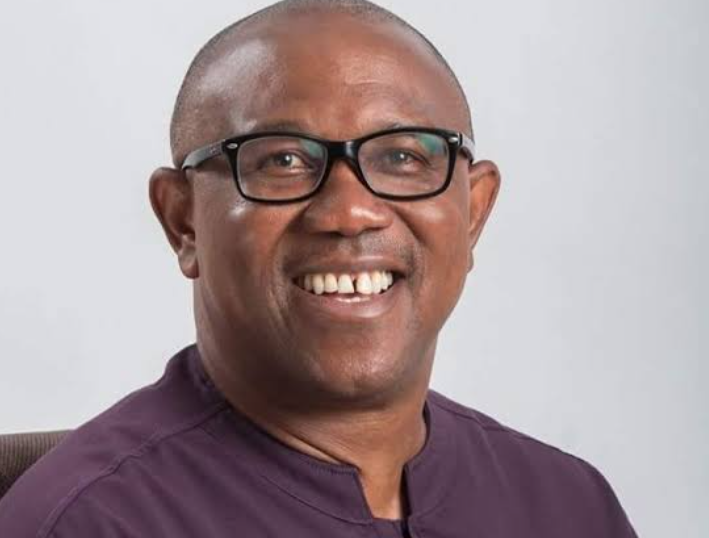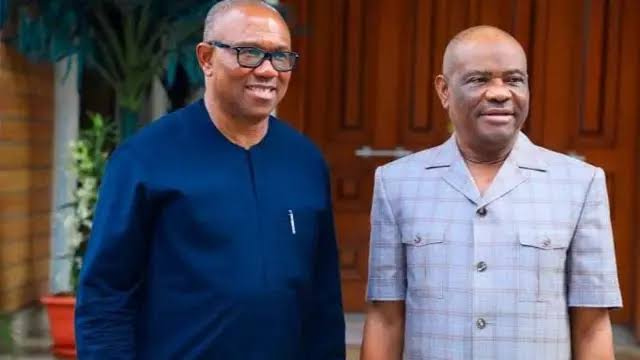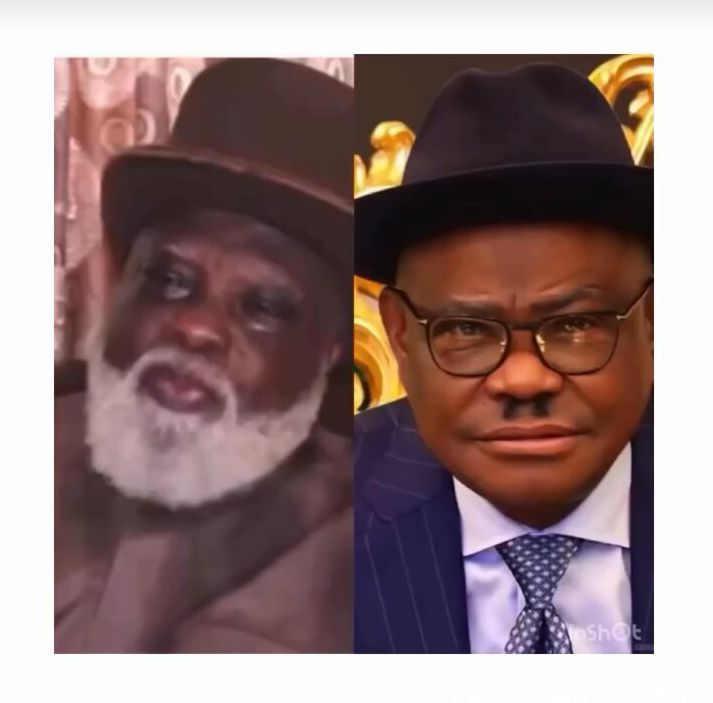
“Worse Than All of Them Combined” — Peter Obi Slams Tinubu’s Borrowing Spree

The former governor of Anambra State and 2023 Labour Party presidential candidate, Mr. Peter Obi, has once again sparked nationwide debate and political tension with his recent remarks targeting the financial recklessness of the Bola Tinubu-led administration. In what many consider one of his most explosive statements yet, Obi declared that “this government has borrowed more money than Yaradua, Goodluck, and Buhari put together,” throwing shade not just at the current government but also dragging the previous presidents into the conversation to show the alarming scale of Nigeria’s fiscal crisis.
Speaking with the conviction that has made him a household name among Nigeria’s frustrated youth, Obi didn’t mince words. He accused the Tinubu administration of plunging Nigeria into a debt abyss with no clear economic plan, no transparency, and no sense of urgency in managing the fallout. His statement, though brief, was a bombshell that reverberated across social media, traditional news outlets, and political circles. Nigerians are no strangers to bad governance, but when someone who once governed without borrowing a kobo — as Obi famously claims about his time in Anambra — raises the alarm, people pay attention.
Obi’s comments come at a time when the economic situation in Nigeria continues to deteriorate at breakneck speed. Inflation is biting harder than ever, with food prices skyrocketing beyond the reach of the average citizen. The naira has become a shadow of its former self, petrol prices are erratic, and unemployment continues to climb. Yet, amid all this hardship, the federal government has been accused of adopting a “borrow-and-spend” model that critics say only enriches the elite while mortgaging the nation’s future.
According to records from the Debt Management Office (DMO), Nigeria’s public debt hit ₦121 trillion in early 2025, up from ₦87.3 trillion at the end of the second quarter of 2023. That means over ₦30 trillion has been added in less than two years — a pace of borrowing that outstrips the combined records of Presidents Umaru Musa Yar’Adua, Goodluck Jonathan, and Muhammadu Buhari during their respective tenures. For perspective, Yar’Adua was in office for just over two years before his untimely death in 2010. Jonathan’s government spanned five years, while Buhari ruled for eight years, leaving office in May 2023 with a total public debt figure just above ₦77 trillion.
Peter Obi is essentially saying that Tinubu, within a single year, has matched or even exceeded all three of them combined — a staggering claim backed by disturbing data. The implications are dire. When a nation borrows at such an accelerated rate without a corresponding increase in production, infrastructure, or employment, it leads only to economic collapse. Already, more than 96% of government revenue is being used to service debt, leaving little to nothing for health, education, or security — sectors that are already gasping for survival.
Obi, who is known for his data-driven approach and ascetic lifestyle, has repeatedly urged the government to cut down on waste, stop borrowing frivolously, and begin implementing policies that encourage productivity and export-driven growth. In a tone laced with frustration, he asked how a nation that borrows this much still finds it hard to pay salaries, secure its borders, or provide uninterrupted electricity. “Where is the money going?” he asked, a rhetorical question that many Nigerians echoed online with sarcasm and rage.
Social media erupted within minutes of Obi’s statement trending. On X (formerly Twitter), hashtags like #PeterObi, #DebtTrap, and #TinubuBorrowing trended as users dissected his claim. Some praised his courage, while others questioned whether his criticism was politically motivated. However, even among his critics, very few could deny the core truth in his message — Nigeria is in serious financial trouble, and the current government is not being honest about it.
For a man who ran his presidential campaign on the promise of accountability, transparency, and economic revival, Obi has stayed consistent in calling out what he describes as “reckless leadership.” Even after the elections, he continues to serve as a watchdog of sorts, issuing warnings that, if ignored, may lead the country down a darker path.
What is even more unsettling is the deafening silence from those in power. No official response was immediately released from the presidency following Obi’s statement. That silence, to many, feels like an admission. When a prominent opposition figure calls out the government with hard-hitting facts and receives no rebuttal, it either means the claims are true or the government has run out of answers.
Economic analysts, civil society groups, and even some members of the National Assembly have begun to echo Obi’s concerns. They warn that Nigeria may soon reach a point of no return if the borrowing spree continues unchecked. Already, international credit rating agencies are becoming increasingly wary of Nigeria’s repayment capacity, and foreign investors are beginning to pull back, citing poor economic fundamentals and a lack of clear policy direction.
The average Nigerian, however, doesn’t need economic jargon to understand that something is wrong. People feel it every time they go to the market and can’t afford food, every time they queue for fuel, and every time they lose their jobs. The cost of living is crushing. And in the middle of it all, the government is taking out new loans for projects that ordinary citizens neither see nor benefit from.
Peter Obi’s warning is more than political rhetoric. It’s a call to wake up — a reminder that leadership is not just about occupying an office or flying around in private jets. It is about making decisions that protect the present and secure the future. As the country waits to see whether the Tinubu administration will respond, one thing is clear: Obi has touched a nerve. And in doing so, he has given voice to millions of Nigerians who are tired of being told to tighten their belts while the government continues to borrow with no end in sight.
With the economic clouds growing darker and the debts piling higher, the question now is not whether Peter Obi is right — but whether Nigeria can afford to ignore him any longer.
Watch the video
“This government has borrowed more money than Yaradua, Goodluck , and Buhari put together” - Peter Obi pic.twitter.com/akcX0LzOhv
— Oyindamola🙄 (@dammiedammie35) July 6, 2025


